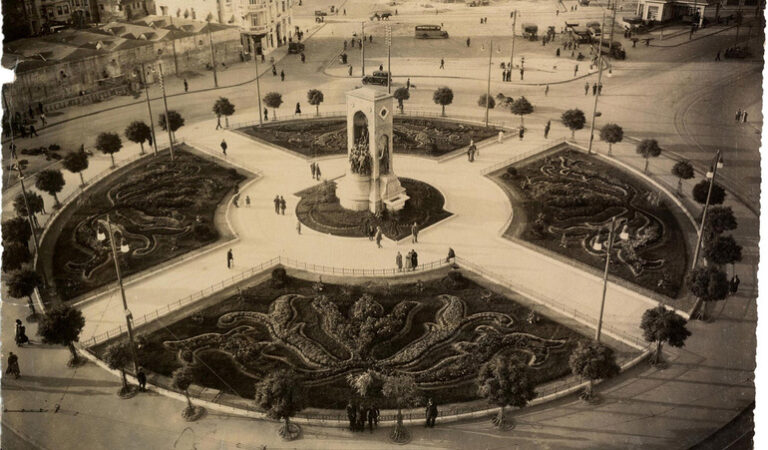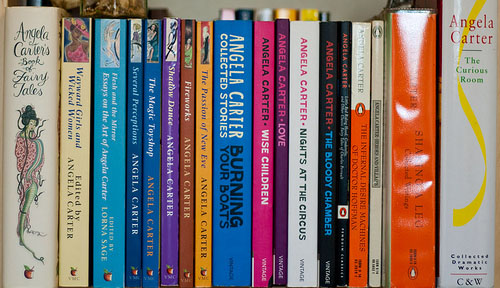Drones & Dystopia: Can Life Overlap with Literature?
Life is sometimes so surreal that you feel as though you’re in a story; as though the anecdote you’ve just related over drinks has an air of falsity about it, simply because it seems too strange to be true. You have to insist to your friends that it actually happened, that life can really be like that. Whether serendipity or zemblanity, odd occurrences can transport us into circumstances we’d never have imagined.
Literature acts as a marker for these situations, these realities that I’m not aware of until I inhabit them. While sometimes a strange juxtaposition of events highlights the experiential truth behind stories—hiding from an old classmate in a coat closet of a high-end Manhattan restaurant reminds me of the description of C.S. Lewis’s wardrobe interior, for example*—more often I measure real events against stories. This measurement happens because I know the story. I know how it ends.
Life and literature can, and do, overlap, even in stories that seem far removed from current realities. Take dystopias, for example: do they help us recognize untoward elements in our own societies? Or does attending to them in the context of technological developments merely fuel paranoia?
Tech and Privacy Reporting
In the last few years, writers reporting on the use of surveillance technology to store information about ordinary citizens have frequently alluded to dystopic novels. Reporters draw parallels between life and literature; literature becomes a touchstone for describing trends that are, in the real world, new frontiers. Each development—take, for example, the massive datacenter in Utah currently under construction—is measured against (a small group of) dystopic novels. 1984 grounds discussions of repressive societies, Fahrenheit 451 warns of the dangers of book-banning and burning, and Brave New World does yeoman work for just about any dystopian anxiety.
Perhaps it’s because, in the concrete, deadline-driven world in which many media reporters exist, these books are the most familiar dystopias: surreal novels that take the characters’ ordinary lives and place them in extraordinary and horrific circumstances. 1984, of course, also spawned the neologism Orwellian (as in the novel’s author, George Orwell), which is often used to describe dystopic elements in our own society, especially worrying ones. Recent examples in web journalism include an Orwellian ministry of truth, Google Glass as Orwellian surveillance, and an Orwellian police state.
Is this Real Life, Though?
Yes! Historically, dystopic novels have been written in response to real political concerns: Orwell took many motifs from Stalin’s USSR, and Bradbury was concerned with censorship during the McCarthy era in the United States. By magnifying actions or organizations that transgress fundamental human rights in our own societies—such as transgressions against privacy—dystopias make more vivid what might otherwise be ignored or dismissed as a surreal but ultimately harmless oddity; in doing this, they also help us recognize the dangers these oddities pose.
Surveillance by corporations and governments, for instance, has become quite widespread. Privacy concerns continue to mount with the trend in Europe and the USA of tracking and storing the location and communication data of ordinary citizens, most of whom have committed no crime and are under no suspicion for having done so. “Is Big Brother here?” is a frequent refrain in newscasts. And mystery drones over airports in New York are nothing to sneeze at. Drone surveillance has been described as “conjur[ing] up images reminiscent of Orwell’s ‘1984’—a totalitarian police-state” in this CNN blog post**. By alluding to fictional dystopias, reporters are able to suggest how new developments will play out and what they threaten for the average person.
Your Everyday Dystopia
Familiarity with dystopic literature allows us to recognize the at-first-small incursions which could become much larger and more dangerous. It allows us to see how and why these ‘small incursions’ bode ill by placing them in particular fictional narratives. Can dystopic literature really prevent police states, help put a stop to book burning, and cause people to give up their televisions? Maybe or maybe not. But measuring it against reality is not merely fueling empty paranoia.
Dystopic fiction provides warnings through elements of recognition. When literature and life seem eerily similar, when both seem dystopic, a warning bell goes off in popular consciousness. “Does the government/this corporation really need this technology/gadget/information? It seems very similar to that one in We.” When we contemplate the world we now live in and the technologies that proliferate, it may help to consider that dystopic fiction may not be quite as fictive as we imagine.
*It’s just an example. Really.
**Side note: I disagree with (al)most (all) of Rand Paul’s politics.


